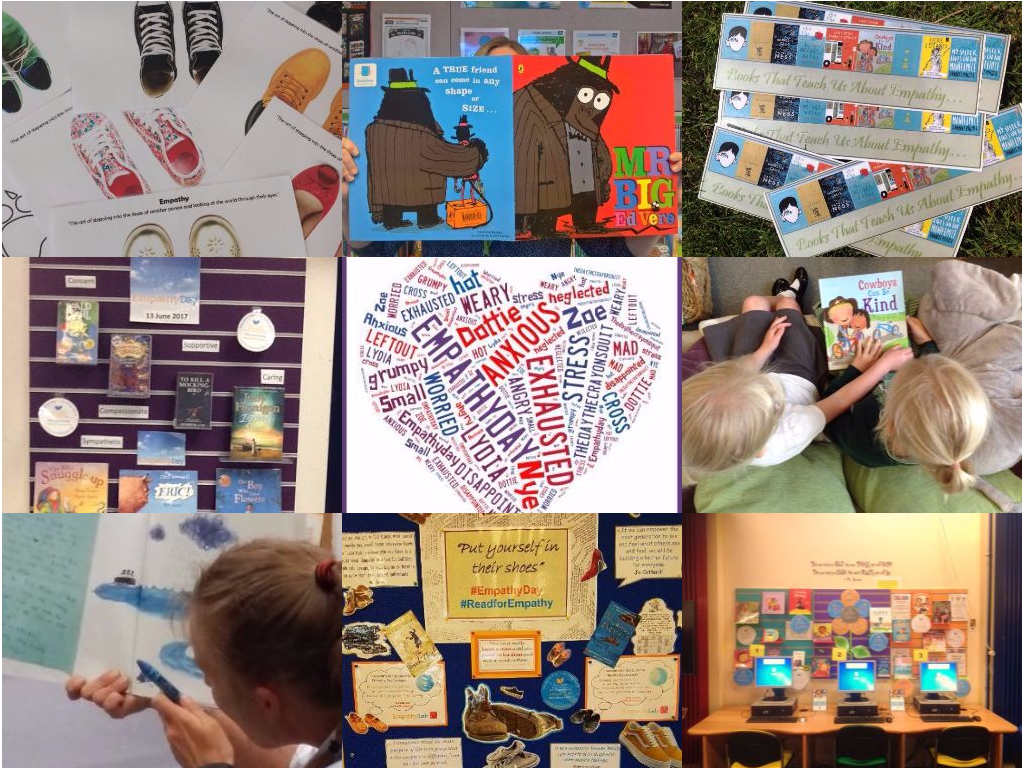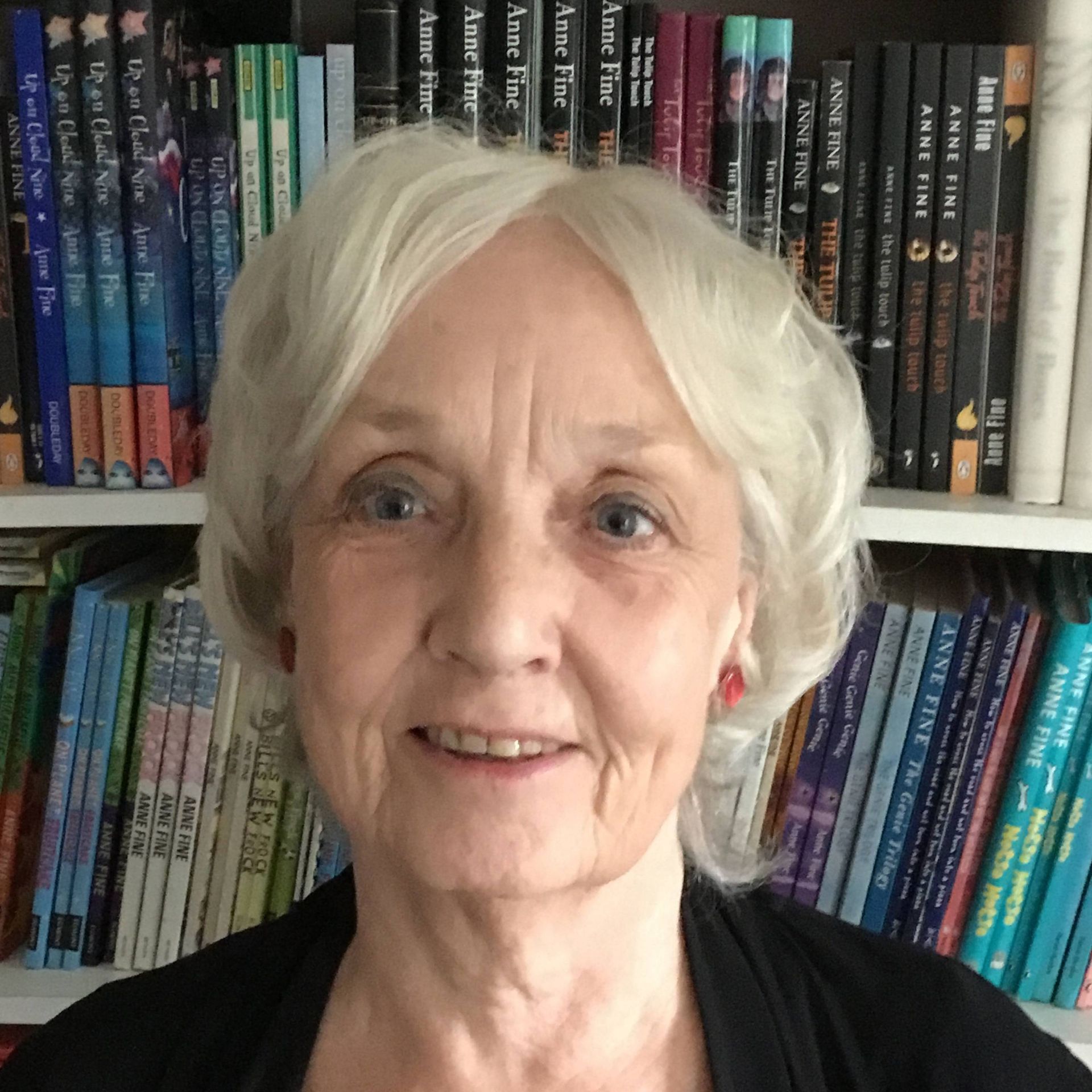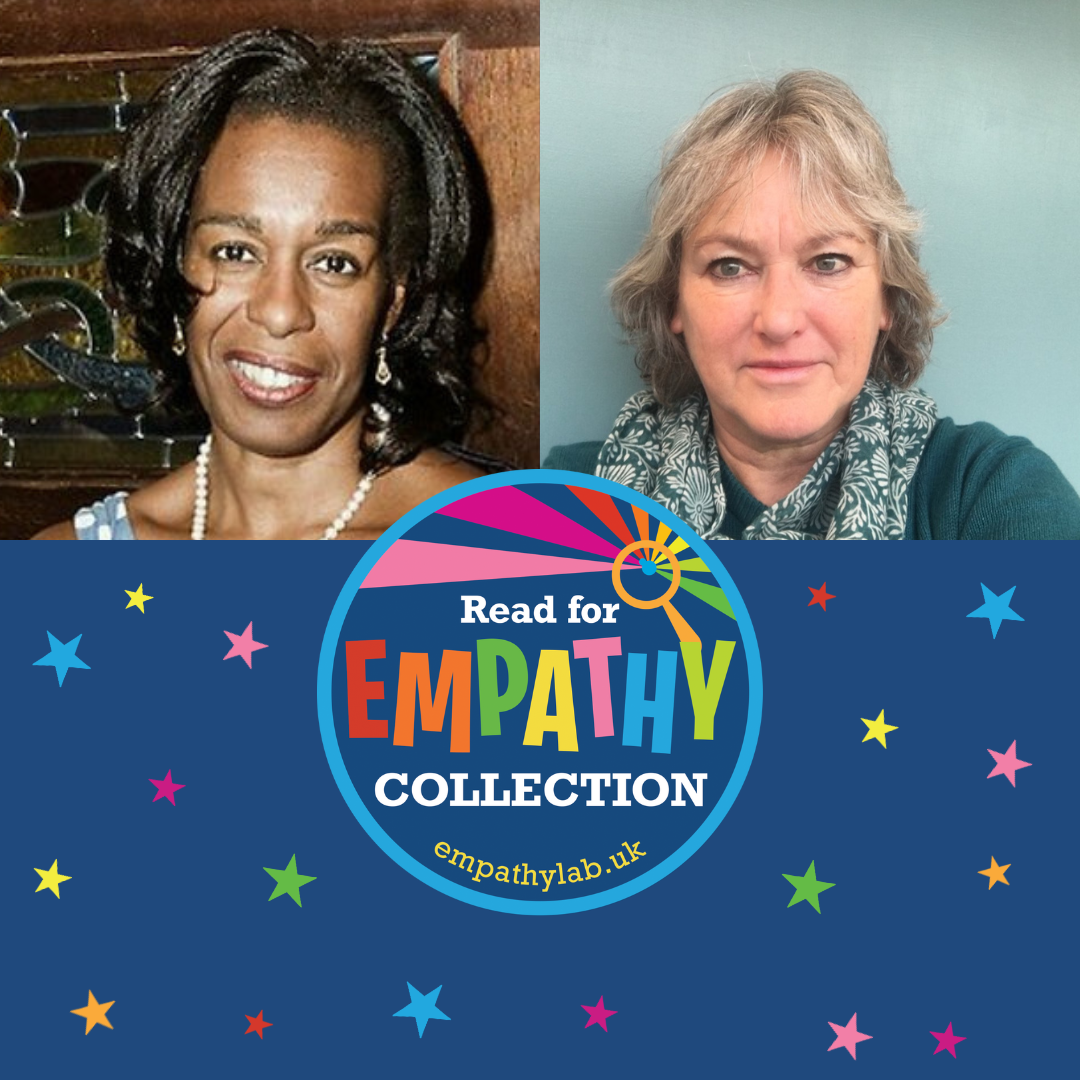Libraries and Empathy Day
- By EmpathyLab
- •
- 25 Jul, 2017
- •
“In libraries we can find out how the world looks to other people. That’s crucial.” -- Author Gillian Cross

Since Empathy Day on 13 June, we’ve been hearing from librarians who made things happen in communities, from empathy themed class visits to creative events based on a single book. They welcomed the chance to focus on how reading can help children build vital empathy skills – as one enthusiast tweeted: “libraries are Empathy Warehouses!”.
19 library services and two Schools Library Services joined in with Empathy Day, from North Tyneside to Devon. This was far more than we were expecting, and we’re thrilled by their creative response and the interest they generated in their communities.
Sheffield Libraries involved Chatterbooks reading group children from all over the city in a creative writing session led by author Nik Perring. Librarian Tina Barber reports: “children’s writing was based on empathy themed books that they’d read. We asked them to put themselves in a book character’s shoes and write a letter advising them how to make their situation more bearable. This produced some profound and moving pieces of work”. Nik Perring says “ This was something different. One of the most important things we can do as people is to think about what other people might be feeling, and putting ourselves in character’s shoes made for some really interesting discussion…we had characters with OCD, autism – we had bullying – all sorts. I met brilliant and talented and caring young people who made brilliant art and stories”.
St Helens libraries ran a series of very well received empathy class visits for targeted schools, exploring feelings and characters’ perspectives through a shared book. Younger children focused on David Litchfield’s The Bear and the Piano, and older children took a fresh look at what Goldilocks did before she broke into the bears’ house. Library staff created displays of books using the theme “walk in their shoes”. Kathryn Boothroyd, Service Development Manager, says: “libraries have a very important role in highlighting the vital part reading plays in supporting empathy skills, and help schools find suitable contemporary fiction for their pupils”
North Tyneside library staff made wordles based on their favourite children’s books. These were tweeted, posted on the library facebook page and used in an Empathy Day display. “Creating wordles made people think about the emotional impact of their favourite books, reinforcing the power of literature to enhance self awareness and a greater understanding and connection to the lives of others”.
Totton library in Hampshire worked with a local school, Netley Marsh Infants, supporting children’s work on making Empathy Awards to book characters showing exceptional empathy. The schools’ Executive Headteacher stationed herself at the library to encourage families to make several library visits in the run up to Empathy Day. The children loved it: “We can’t wait to find out which book has won the award. I am going to go to the library next time to get my book chosen.” (Y2 boy).
Essex Libraries piloted an empathy-focused event for young library users in Chelmsford, basing it on Oliver Jeffers’ superb book, The Day The Crayons Quit. Children aged 4-7 were very thoughtful in exploring the squabbling crayons’ different viewpoints, and learnt new words for feelings. This was a very different kind of story event, involving explicit exploration of emotions and different perspectives.
A big thank you to the library services and the many, many individual librarians who joined in Empathy Day. In creating libraries’ plans, we were delighted to be supported by the Society of Chief Librarians. We’re now talking to them and the participating library services about developing an exciting library for future Empathy Days.

Why has the sheer importance of empathy come to the fore in recent years? Why do we care so much about a concept that had seemed to be left to itself for so long?
Perhaps because there has been so much change and upheaval for our young people in recent years, leaving so many isolated from what we might term ‘real’ contact with others. Lockdown was for many a disaster. The proliferation of phones hasn’t helped. Financially stretched families are often starved of time that can be spent in casual, easy, contact with one another.
So gaining an understanding of others from fiction has become more and more important. Children have always learned from the books and stories they are offered. From the fairy tales, children who lived in an elemental world without luxuries or social safety nets learned the virtues that were so necessary back then to survival: courage, resourcefulness, endurance, quick wits, kindness to strangers.
Our own young people live more tightly under separate roofs, and we have seen the language of books change accordingly - to Mum, the babysitter, playgroup, park, baby sister, Dad’s girlfriend, the bully, happy, worried, sad. It’s the language of relationships and emotions now, and understanding and compassion liberate. They have become the twenty-first century equivalent of Hansel and Gretel’s pebbles gleaming in the moonlight to show the way out of the dark forest.
Frank Flanagan once said good writers “structure, explain and evaluate the experience of childhood and empower the child to come to terms with it. They enable the child to lead a full life."
How? Partly by quite unconsciously increasing self-knowledge and self-awareness. A young reader can’t help but see characters in books unconsciously as if in a mirror. "I'm not like that." "I worry about that too." "I would have been braver”, “slower to catch on”, “tempted to be more mean”. And when this sense comes of no longer being the only one in the world to have this problem, or to feel that way, the child not only comes to realise that they are not alone, but also to gather insights into how other people deal with the same worries or tackle the same problems. In short, they learn, vicariously, how other people tick.
We have so many young people who, it seems, sometimes as a result of their upbringing, often simply by nature, have somehow failed to acquire the tools to begin to think about their own situation. Through fiction they can often begin, safely, to explore the more subtle aspects of life around them - an insight into someone else's life. A child can share desk space with someone else all year and yet learn less about them than about a character in one short book that’s read to them at night. I try to show this in my novel On the Wall , where, over the school year, Finley’s quite exceptional gift for tranquillity and self-acceptance in an anxiety-inducing world causes one fellow pupil after another to look more deeply into themselves, and learn how to rebalance their own way of thinking to become, in the process, calmer, happier, or more accepting.
We all want, for our young people, peace of mind. An excellent start is to explore Lauren Child's wonderful 'Staring into Space' project: https://staringintospace.me/
Then, steep them in fiction. And where better to find the
best than at the EmpathyLab itself?
You can purchase Anne's book, On the Wall,
here

The collection consists of 65 books for 3-16 year olds, each chosen for its unique contribution in building young people’s empathy.
The primary collection for 3-11 year has 40 books; the secondary collection features 25 books for 12-16 year olds.

